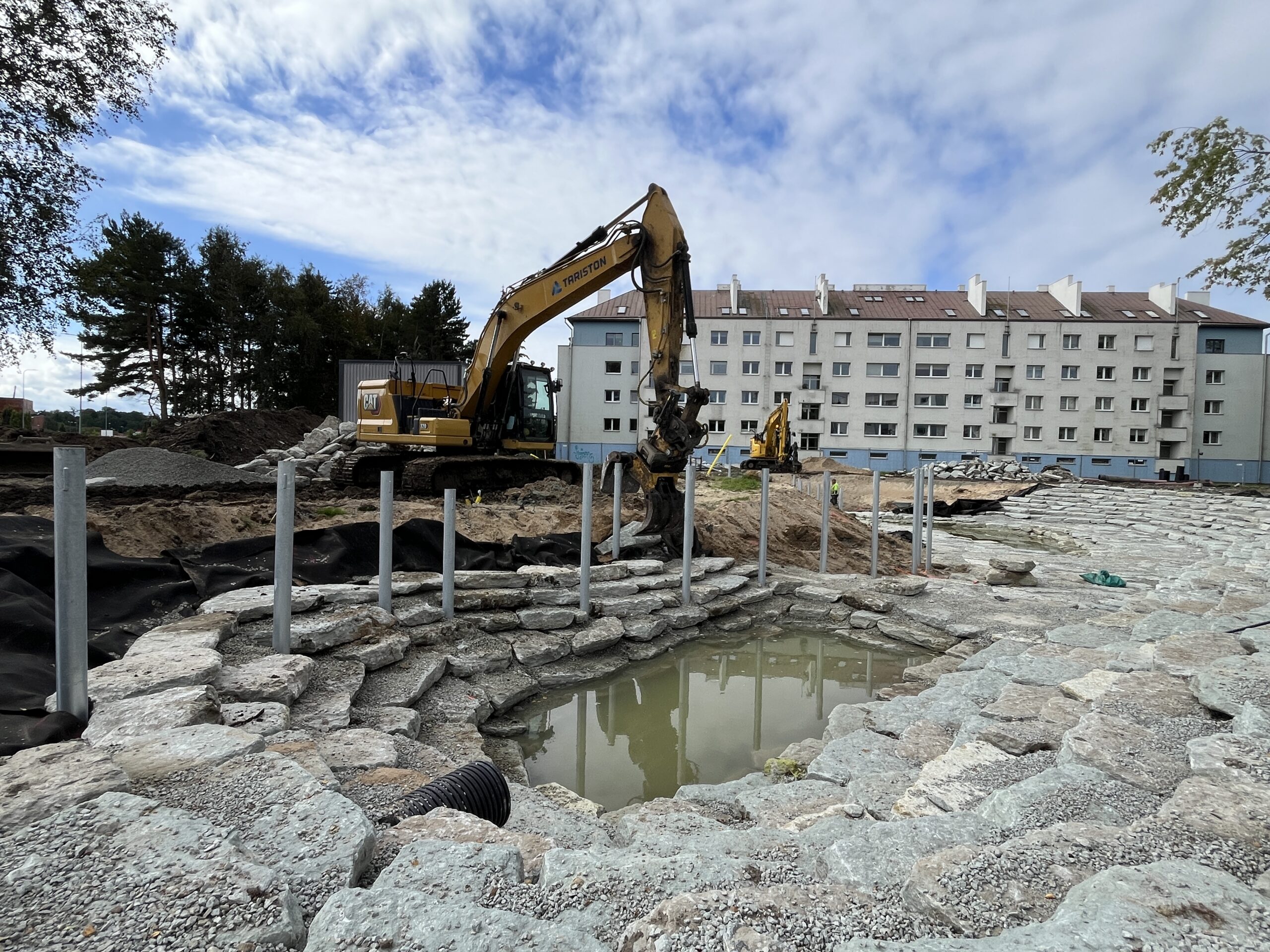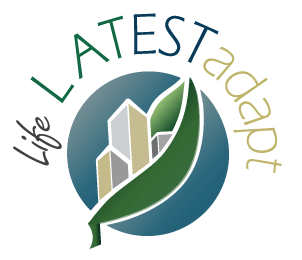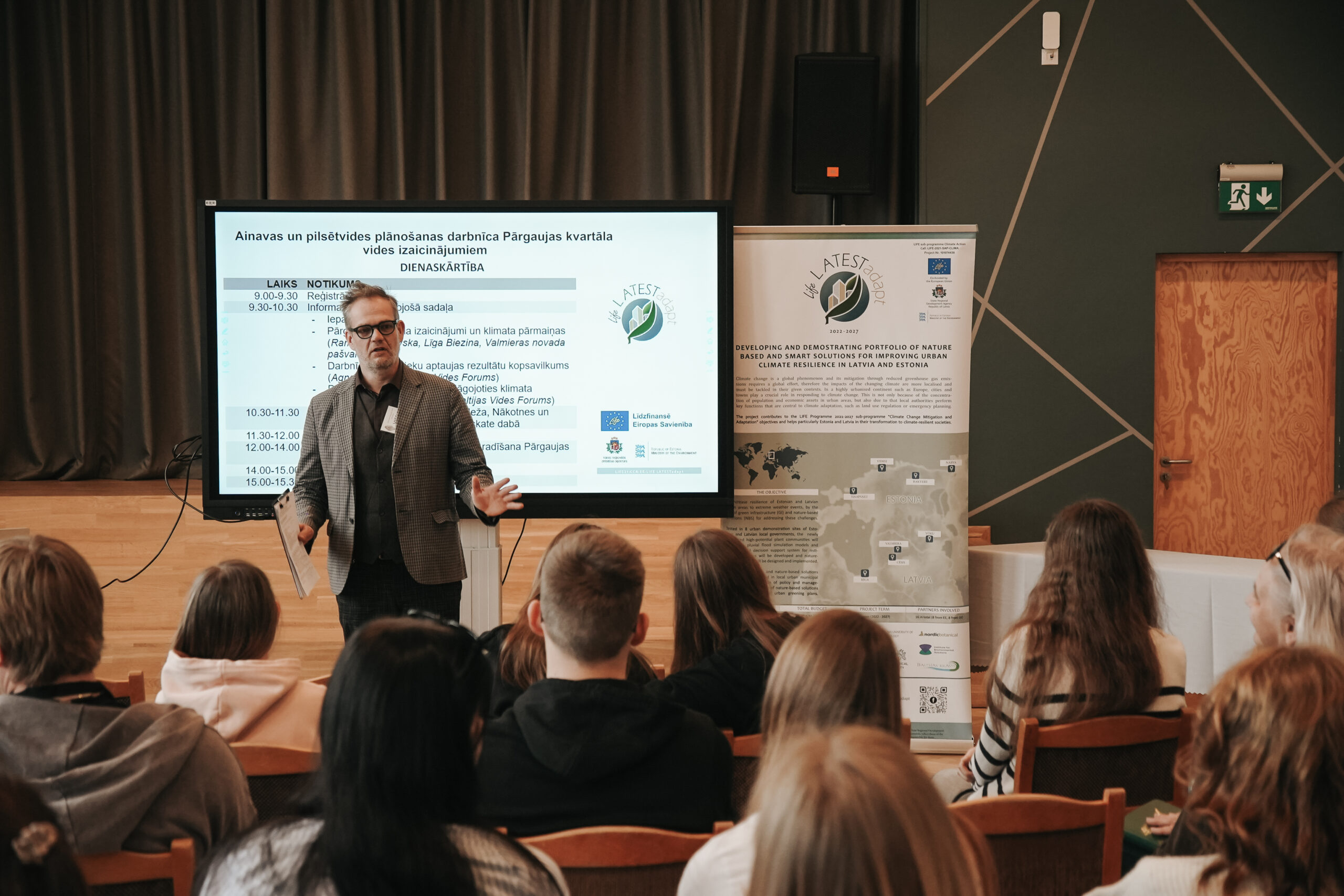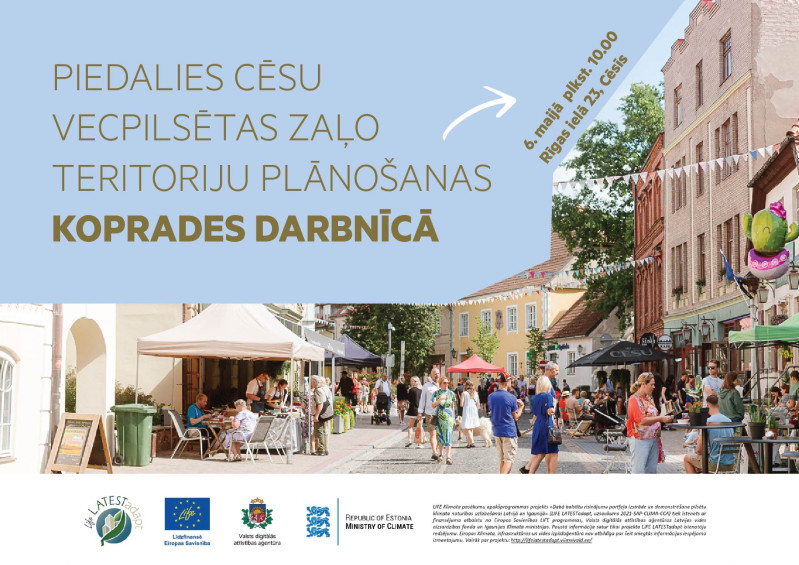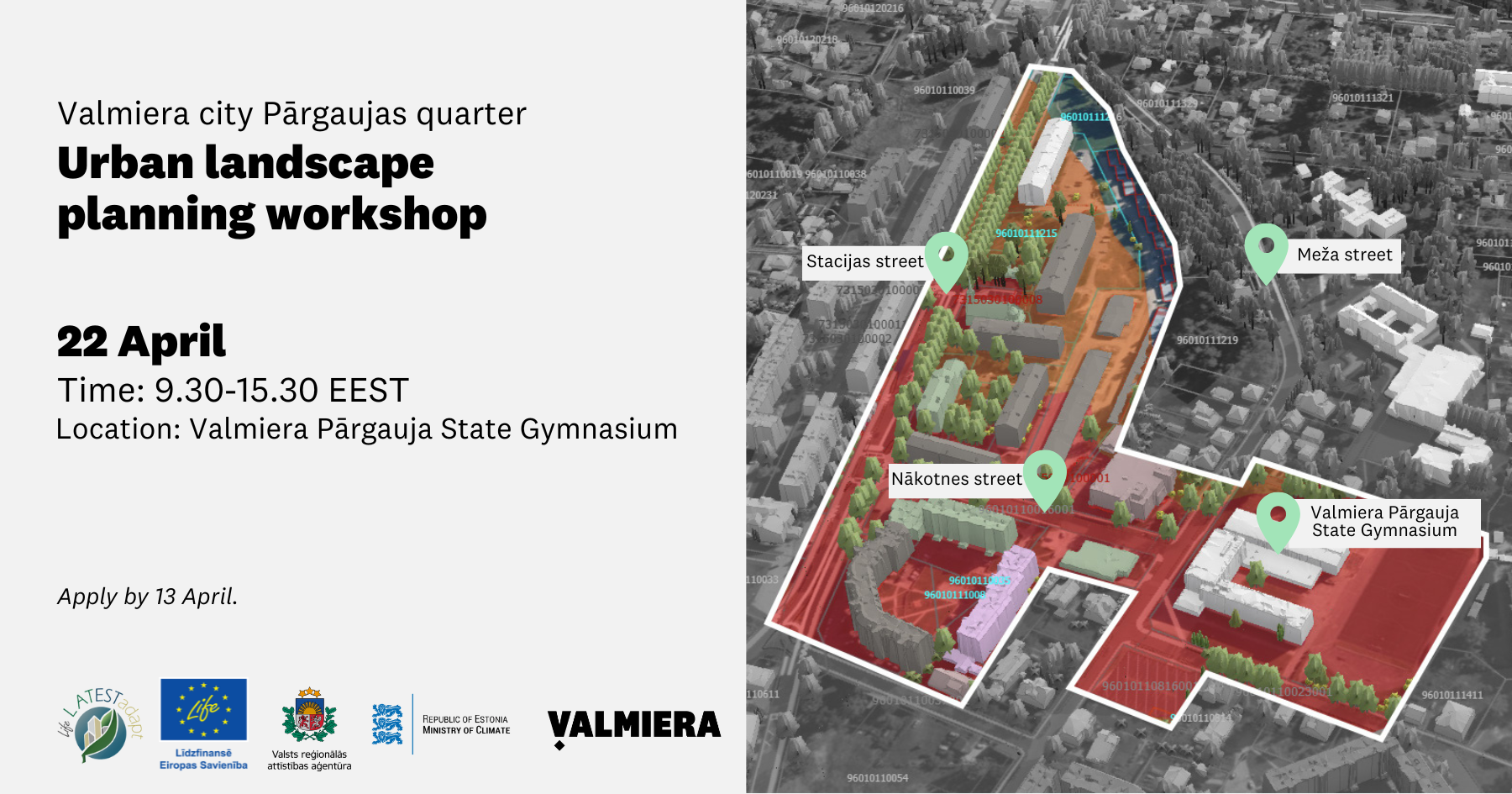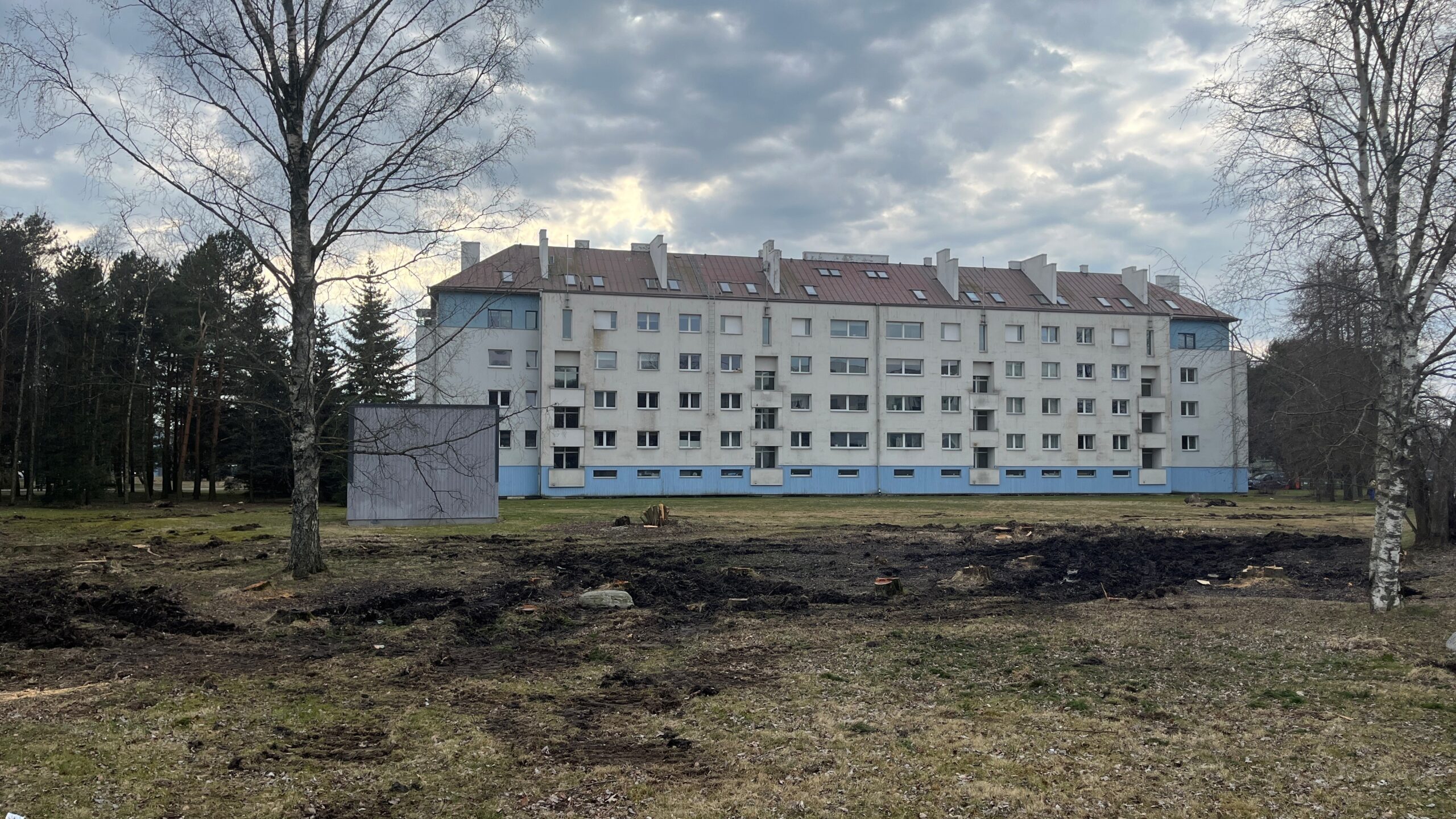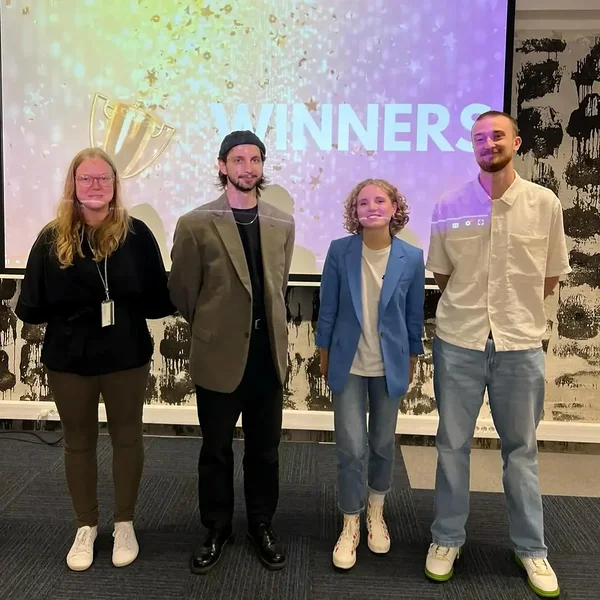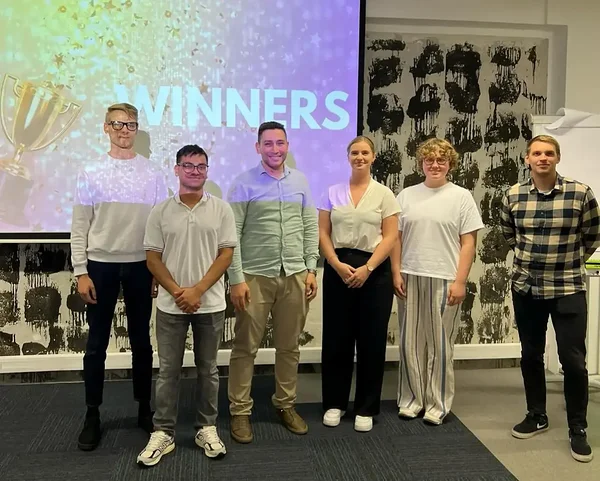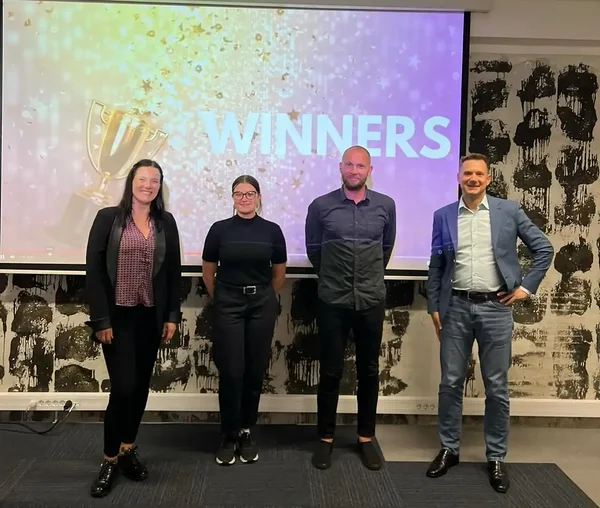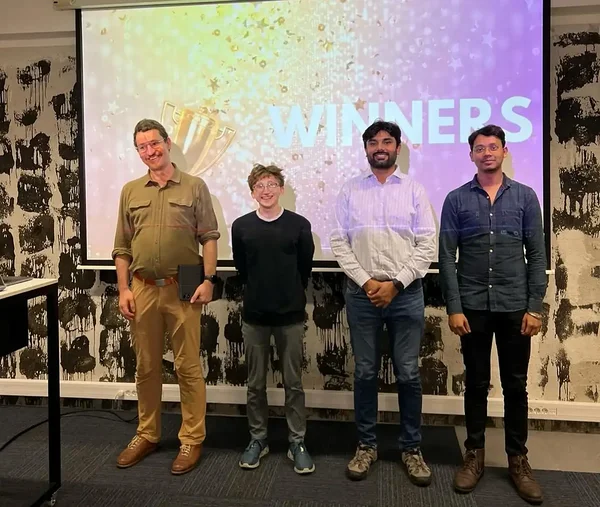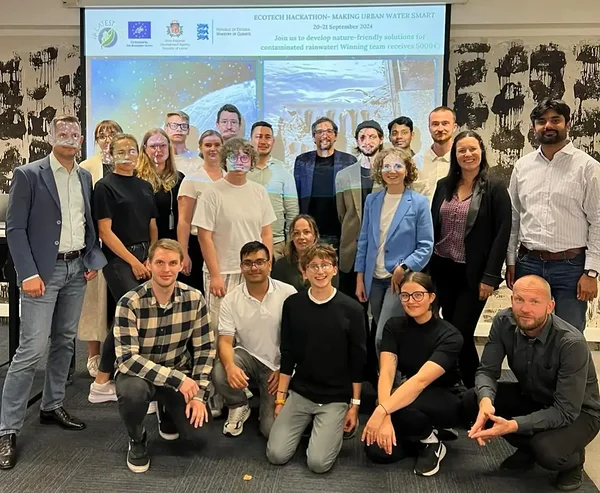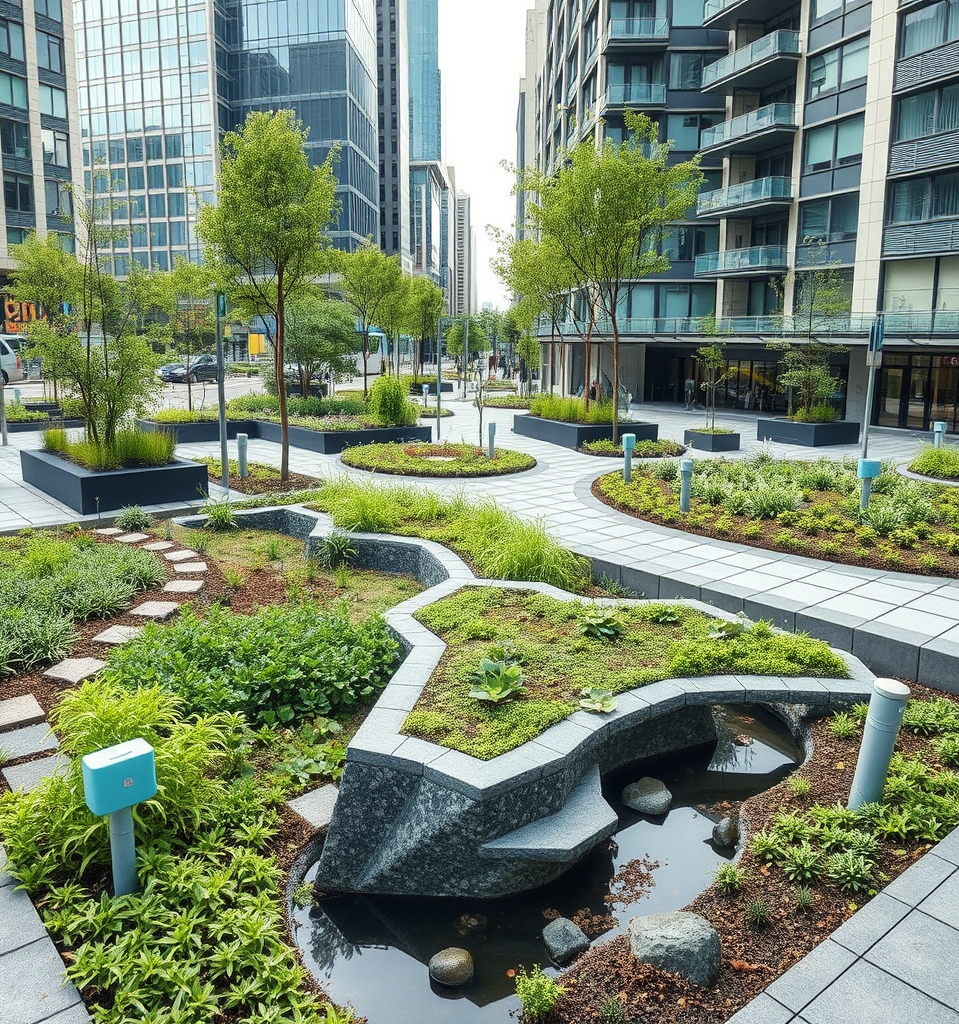
In September, we had the chance to witness some of the most passionate and innovative minds come together at the EcoTech Hackathon 2024. Over three intense days, from September 19th to 21st, we watched teams dive deep into one of the biggest challenges urban areas face today – stormwater management.
Hosted by Garage48 and TalTech, the hackathon focused on finding smart, sustainable ways to manage stormwater, a growing issue as climate change leads to more frequent flooding in cities. The event attracted everyone from developers and engineers to environmental scientists, all eager to create solutions that would help cities become more resilient.
Here’s a look at the teams from this year’s hackathon:
Team 1: Street Flow – Monitoring Water Level with Street Cameras
Meet Team Street Flow, who are on a mission to make flood prevention smarter and more cost-effective! Recognising that traditional flood monitoring systems can be prohibitively expensive, they’re harnessing the power of existing street cameras. By analysing camera footage for flood levels, area, and volume, they’re creating a data-driven, machine-learning model that’s easy to maintain and implement. Their innovative approach doesn’t stop at flood prevention; in the future, it could also enhance snow condition assessments and traffic monitoring.
The team’s prize: 2000 EUR
Team 2: Smart Flood – Simplifying Urban Flood Risk Monitoring
Next up is Team Smart Flood – the innovators revolutionising urban drainage monitoring systems! Their mission is clear: detect blockages before they lead to flooding disasters. Using data from advanced sensors, they’ve developed a predictive modelling system that sends timely alerts to municipalities and decision-makers, helping them take proactive measures. This innovative solution not only safeguards communities but also saves cities significant costs associated with damage and repairs.
Their application features two perspectives: a citizen view that keeps the public informed and a stakeholder view tailored for decision-makers. With a strong technical team of developers, designers, and engineers driving this initiative, they’re ready to make waves in urban water management! Looking ahead, they plan to kickstart the project by purchasing their first sensors, with an initial investment of €150,000 needed for the first year. Smart Flood is set to transform the way cities manage stormwater runoff—one sensor at a time!
The team’s prize: 1500 EUR
Team 3: ProcureMate – Sustainable Procurement for Municipalities
Here’s Team ProcureMate, the group integrating Nature-Based Solutions (NBS) into public procurement! They’re developing an AI-assisted chatbot that guides municipalities and stakeholders through the procurement maze, making it easier to adopt sustainable practices. By seamlessly incorporating NBS options into procurement platforms, they streamline the decision-making process. Having already validated their solution with Valga Municipality and Green Tiger, they’re ready to take it for a test drive. Their innovative approach promises to elevate public procurement to new green heights!
The team’s prize: 750 EUR
Team 4: Data Quality Control – Ensuring Reliable Stormwater Data
Last but not least, Team Data Quality Control, tackling the critical challenge of data reliability! In a world awash with information, ensuring data quality is paramount. Their prototype aims to develop a monitoring system that continuously evaluates datasets, identifying inconsistencies, anomalies, and missing data. By flagging potential issues in real-time, they help ensure that only trustworthy data is processed. Their system dives deep into the root causes of disruptions, whether it’s the data source, sensor errors, or transmission hiccups, promptly informing the right parties for resolution. Quality data means quality decisions.
The team’s prize: 750 EUR
Challenges Along the Way
While the EcoTech Hackathon was a big success, the journey wasn’t without its roadblocks. Teams like Smart Flood wrestled with making complex data models accessible to non-technical users, while Street Flow struggled to integrate diverse data sources, such as drones and static cameras, into a single coherent dashboard. Understanding the end user and how to make the technology easily scalable were recurring themes across all teams.
Despite these challenges, the passion and commitment of every participant were clear. The mentorship provided by experts such as Kristjan and Alar was instrumental in guiding teams through these hurdles, turning obstacles into learning opportunities.
As a final note, The EcoTech Hackathon 2024 proved that collaboration between tech innovators, urban planners, and environmental scientists could lead to real, impactful change. The solutions developed this weekend have the potential to reshape how cities manage stormwater and prepare for the impacts of climate change.
For those who missed this incredible event, don’t worry—there will be more opportunities to innovate with Garage48. In the meantime, stay connected through social media and make sure to follow our journey toward building smarter, more sustainable cities!
Written by Mari Hanikat
The EcoTech hackathon was brought to you by Garage48, TalTech Urban Water Systems research group and the LIFE LATESTadapt project.
Link to original article – https://garage48.org/blog/ecotech-hackathon-we-made-urban-water-smart
